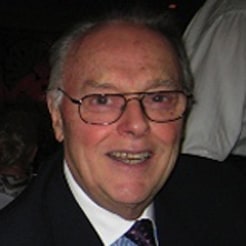
Creating Our Futures – Together
“The most reliable way to predict the future is to create it.” —Abraham Lincoln
In, 2030: How Today’s Biggest Trends Will Collide and Reshape the Future of Everything, Mauro Guillén, sociologist and Director of the Cambridge Judge Business School at Cambridge University, describes how he sees the new reality of 2030:
- Grandparents will outnumber their grandchildren
- The middle class in Asia and sub-Saharan Africa will outnumber the middle class in North America and Europe combined
- The non-Western consumer will drive the global economy for the first time in modern history
- Women will own more global wealth than men
Focusing on our opportunities rather than our downsides is the bottom line way for us to understand what is happening in our world and how we react to the constant changes around us. Guillén offers seven principles to help leaders adapt to current and future realities.
- Losing sight of the shore: Fear of the unknown is what prevents us from seizing the opportunities embedded in the massive transformations to come in 2030 and beyond. The story of Hernán Cortes burning the ships of his sailors after he landed in Mexico in 1519 was to help them overcome fear by looking ahead not behind. We must accept the realities of technological disruption, embrace innovation and change, and ensure that no one of our colleagues is left behind. This will require us to practice courage.
- Diversifying with purpose: We cannot put all of our eggs in one basket, and if we lose sight of the value of our clients, we will lose the advantage with which we began our journey into the future. This means that as effective leaders we must welcome fresh perspectives and open our minds to a multitude of new ideas. This will require us to practice flexibility.
- Starting small in order to become: We must start from small ideas and move incrementally through repeated iterations and reflections at each step we take, which is a more optimal approach than attempting a major breakthrough. Remember that Steve Jobs did not invent the digital music player, the smartphone, or the tablet; rather, he made them better. This will require us to practice ingenuity.
- Anticipating dead ends: If we keep our options open, our performance will be enhanced, and our future will become brighter. We should avoid reaching decisions that run us into a corner with no escape route. Each of us should focus on preserving our options, lest the transformations ahead catch us off guard, and we end up stuck with nowhere to turn. This will require us to practice readiness.
- Approaching uncertainty with optimism: Team members and team leaders feel more anxious about our future, when we perceive that we have lost control over our environment. Hence, the more we focus on opportunities rather than downsides, the greater the chances of our adapting successfully to the challenges of the future. This will require us to practice focus.
- Overcoming fear of scarcity: Our mindset – growth, not fixed – described by Stanford Professor Carol Dweck in Mindset: The New Psychology of Success should become one of avoiding reducing our options by innovating and by preserving our finite riches. For example, mundane adaptations and lateral thinking will go a long way toward mitigating climate change and other global threats if we adopt more environmentally friendly behaviors. This will require us to practice growth.
- Taking the current: The rules of the game keep changing, and while the only possible response to change is change itself, we cannot successfully respond to any transformation by merely trying to minimize our losses or by overcoming scarcities one at a time as they manifest themselves. Just because we have an idea that isn’t original, does not mean that it will not be successful. This will require us to practice presence.
If we wish to create our own futures, we can begin by practicing courage, flexibility, ingenuity, readiness, focus, growth, and presence. This is a great beginning, but it is just a beginning. We will need to follow up with whatever change presents itself. For all of us, the world as we know it is about to change, and it will not be turning back so soon.
- About the Author
- Latest Posts
Vice President Emeritus for Learning Technologies Donald Smith, Ed.D, CPT, headed ME&A programs in learning, leadership, and performance enhancement. He stayed with the firm in his retirement, bringing more than 65 years of experience as a coach, designer, facilitator, evaluator, manager, educator, and organizational change architect in more than 50 countries. He is affectionately known as ME&A’s MENCH.



